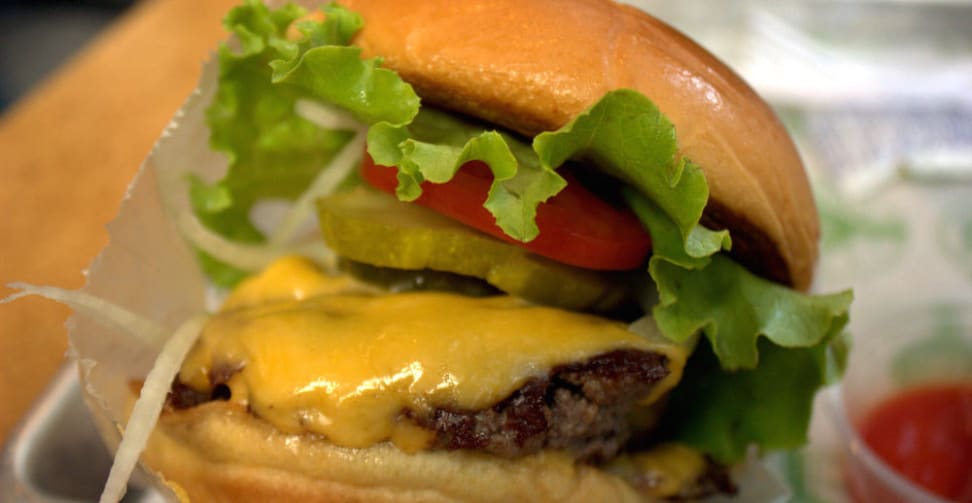 Credit:
Flickr user "scaredykat"
Credit:
Flickr user "scaredykat"
Products are chosen independently by our editors. Purchases made through our links may earn us a commission.
A test-tube 'burg is now cheaper than most meals at Five Guys.
In 2013, researchers at Maastricht University announced that they had successfully created a hamburger made entirely out of lab-grown beef. At the time, concocting the faux-burger cost around $325,000—a sum that added an unsavory note to an otherwise remarkable feat.
But recently, Dutch professor Mark Post told ABC news that the estimate had since dropped to around $11 a patty, or $80 per kilogram. "From a small piece of muscle you can produce 10,000 kilos of meat," he explained.
The process involves extracting the cells that repair muscle tissue from cows and placing them in a container with something appetizingly called "fetal calf serum." After the calf serum's nutrients are reduced, the cells begin to produce protein.
RELATED: Why We're Eating Less Beef, and Why It's a Good Thing
Obviously, the most important question is, "how does it taste?"
Well, when the burger was unveiled in 2013, the taste test results were less-than-glowing. "The absence is the fat, it's a leanness to it, but the bite feels like a conventional hamburger," said food authour Josh Schonwald, who was one of the first people to taste the lab-grown beef.
Still, there's hope that the taste can be improved simply by allowing some of the stem cells to develop into fat cells, which would give the meat a more juicy, robust flavor.
If you're hoping to see animal-free meat in your grocer's butcher shop sometime soon, you may want to curb your expectations. Long-term, commercially viable production of this stuff is still relatively far off.
"I do think that in 20, 30 years from now we will have a viable industry producing alternative beef," Post said.
But even if we're still a few decades away from mass-produced test-tube beef, there's no denying its potential impact on the environment, our health, and world hunger.
Related Video
{{brightcove '3032193776001'}}
